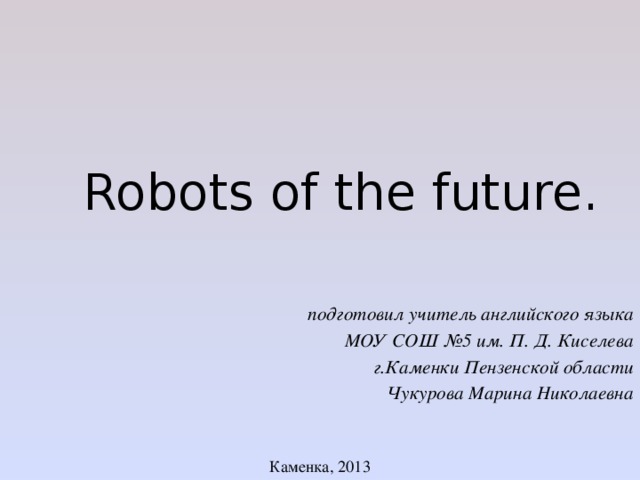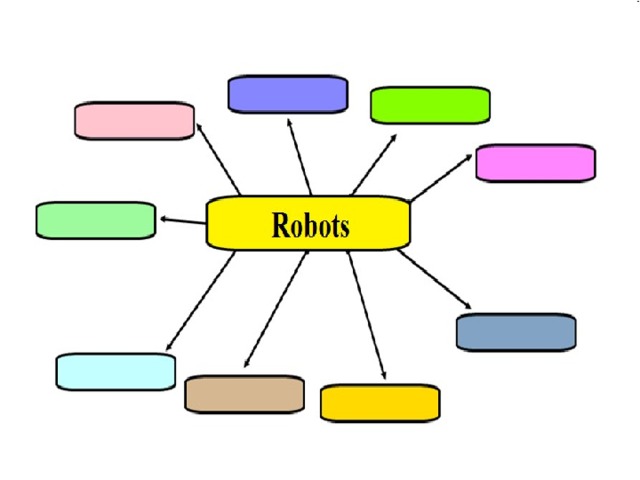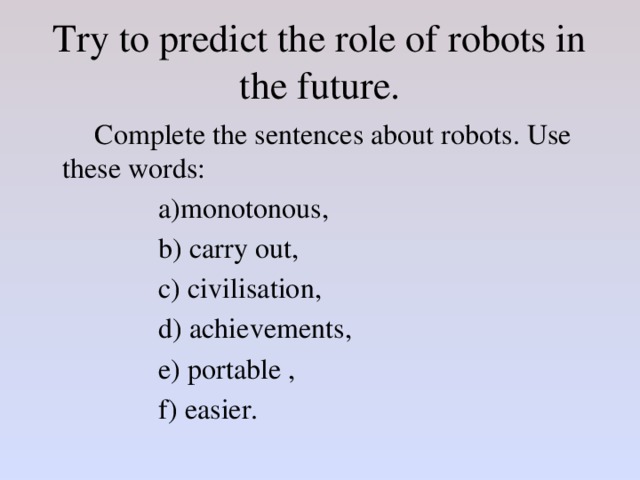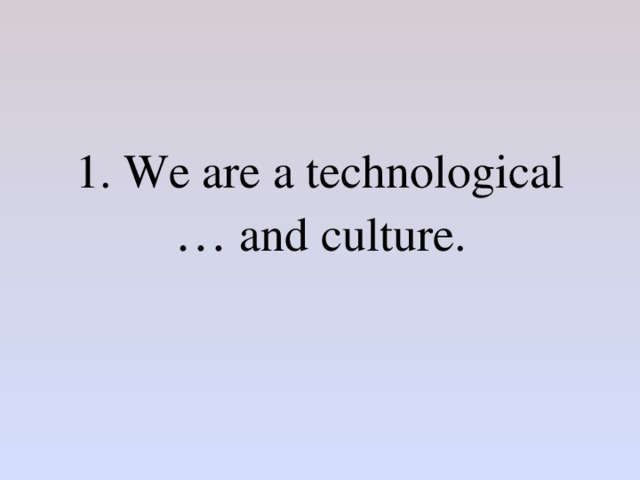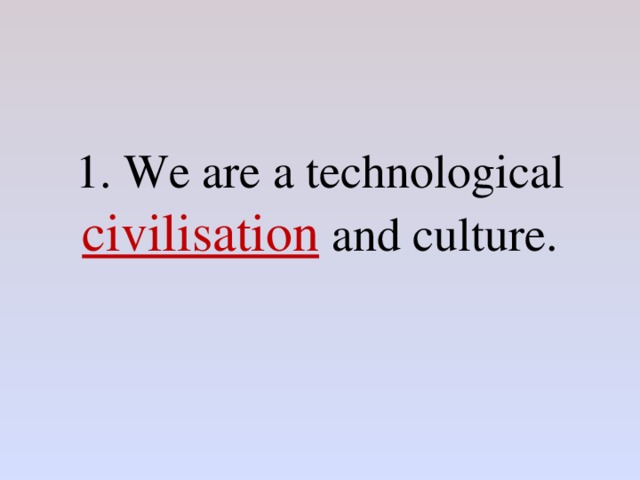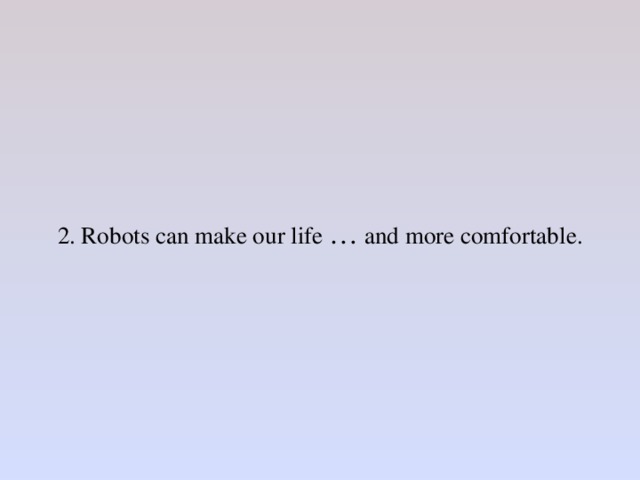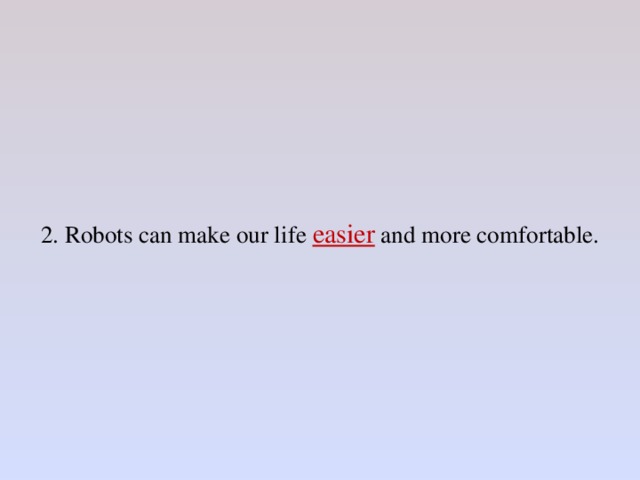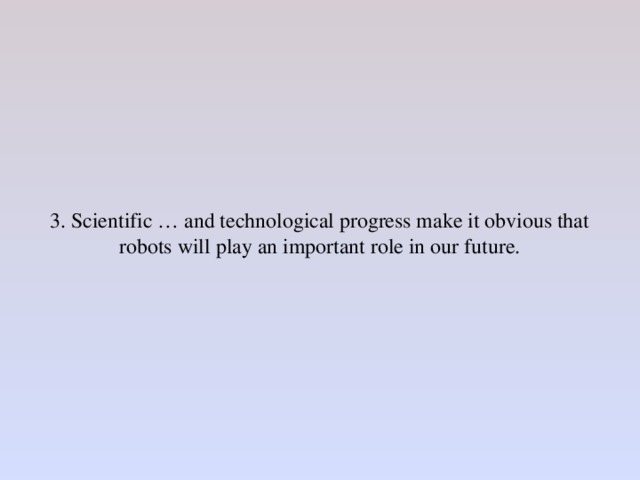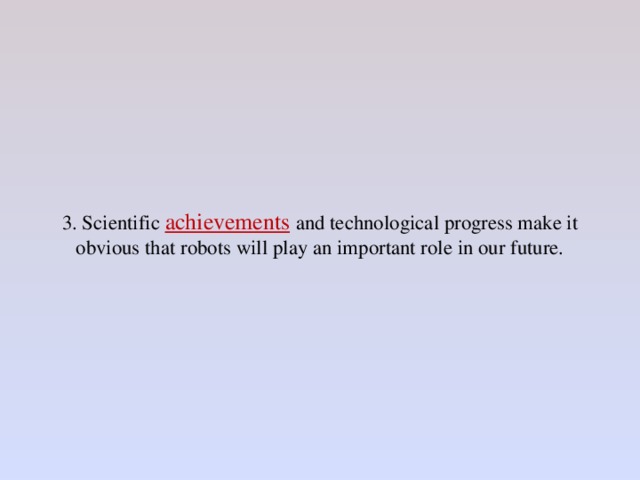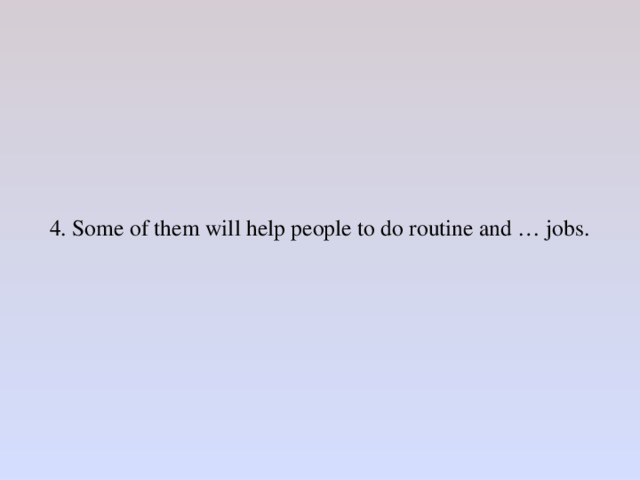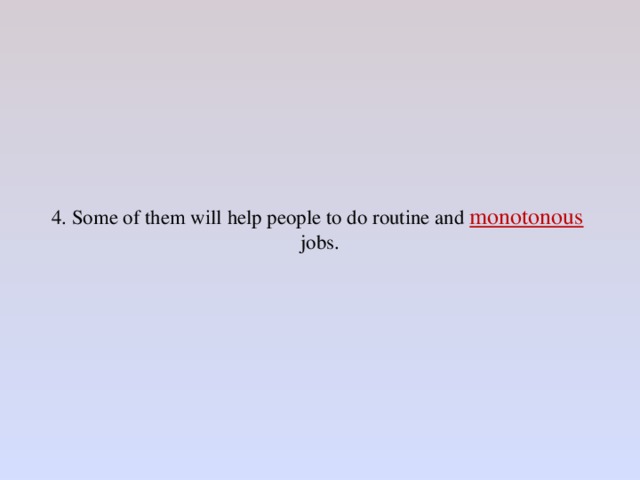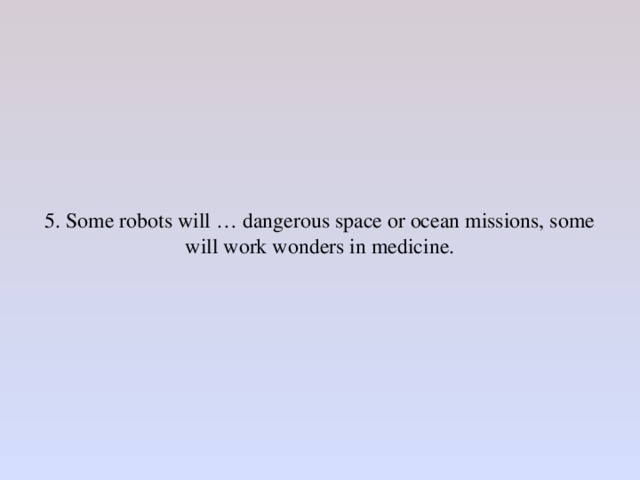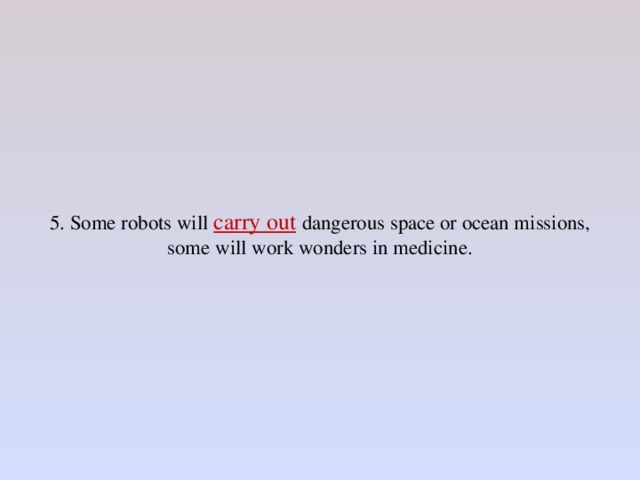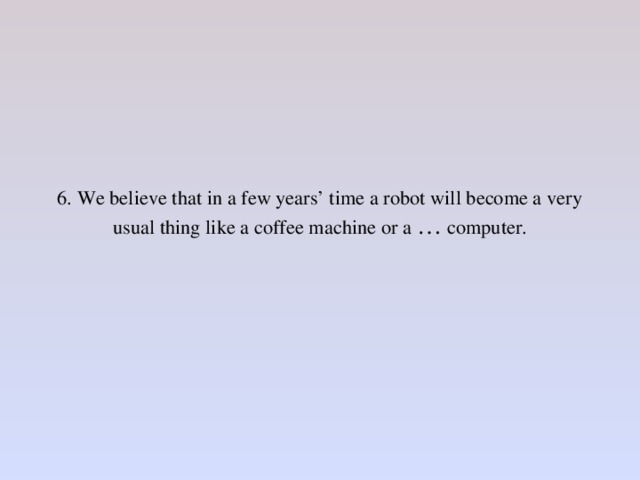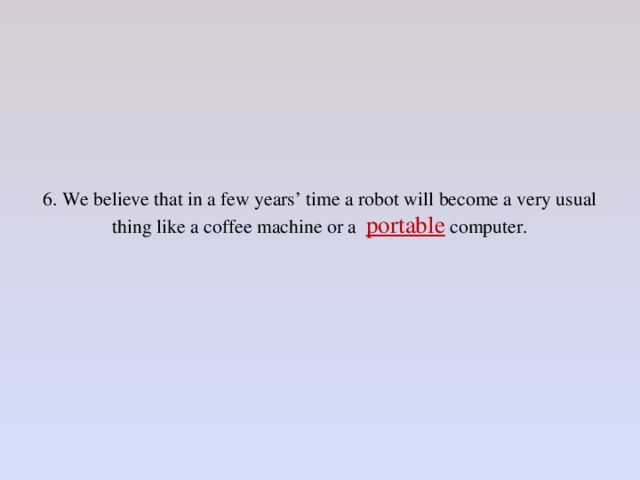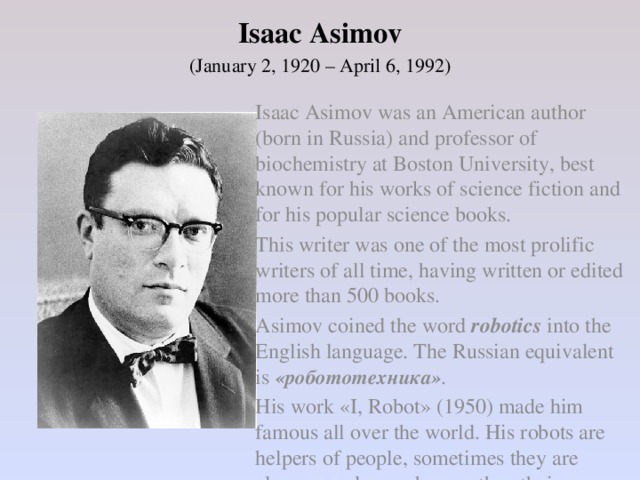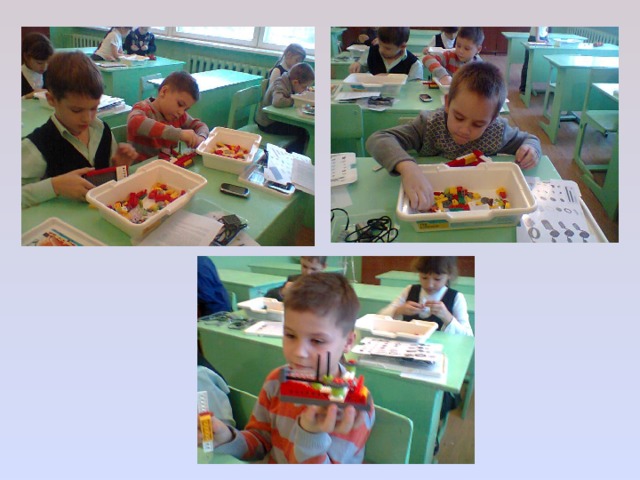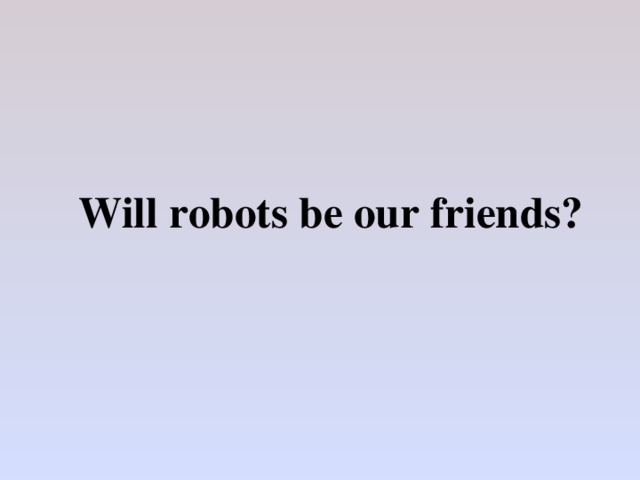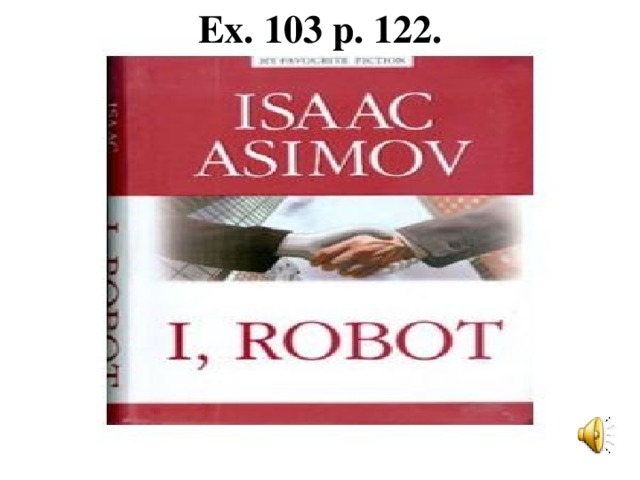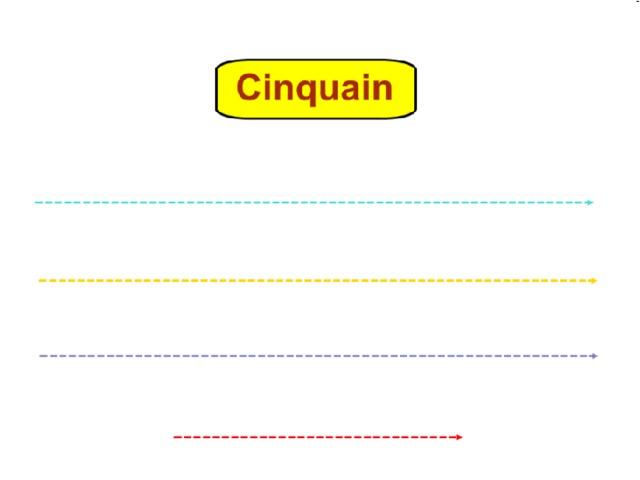Урок английского языка в 10 классе на тему «Роботы будущего».
Технология развития критического мышления.
Цель урока:
1. Развивать логическое мышление, умение сопоставлять и делать выводы, выражать своё мнение, вырабатывать умение критически оценить, осмыслить и самостоятельно применить новую информацию.
Задачи урока:
- Активизировать лексику и лексико-грамматические конструкции по теме в разных видах деятельности (аудирование, чтение, говорение, письмо).
- Развитие умений чтения биографического и художественного текста.
3. Подготовить учащихся к монологическому высказыванию по теме “ Роботы будущего ”.
Формы работы:
фронтальная работа (ответы на вопросы);
индивидуальная работа ( монологические высказывания);
работа в парах
Оборудование:
мультимедийная презентация к уроку, компьютер, мультимедийный проектор, на каждом ученическом месте – листы с распечатанными заданиями, учебник: Биболетова М.З.Английский с удовольствием.Учебник для 10 класса общеобразовательных учреждений. Титул.2012.
Ход урока
1.Стадия вызова (Evocation) (Цель: актуализировать и обобщить имеющиеся у ученика знания по данной теме или проблеме; вызвать устойчивый интерес к изучаемой теме, мотивировать ученика к учебной деятельности.)
Teacher: Good morning, students. I hope you are fine today. Now I see you are ready to start working. Today we’ll speak about robots.
Корзина идей.
Coставление кластера.
What are your associations with the word robots?
What is a robot?
How does it operate?
What can it do?
Can we rely on robots?
Robots
…
…
…
…
…
…
…
Make up your own sentences with these words. (Slide 2).
2.Стадия осмысления (Realization of meaning) (Цель: помочь ученику получить новую информацию, осмыслить ее, соотнести с уже имеющимися знаниями, проанализировать новую информацию и уже имеющиеся знания.)
Дерево предсказаний. (Slides 3-15).
Try to predict our future.
Complete the sentences about robots. Use these words: a)monotonous, b) carry out, c) civilisation, d) achievements, e) portable, f) easier.
1. We are a technological civilisation and culture.
2. Robots can make our life easier and more comfortable.
3. Scientific achievements and technological progress make it obvious that robots will play an important role in our future.
4. Some of them will help people to do routine and monotonous jobs.
5. Some robots will carry out dangerous space or ocean missions, some will work wonders in medicine.
6. We believe that in a few years’ time a robot will become a very usual thing like a coffee machine or a portable computer.
Do you agree with these suppositions?
Will robots be our friends?
A lot of people were interested in this problem. One of them was an American writer Isaac Asimov. (Slide 16). (чтение биографического текста).
What is he famous for?
The word “robotics” is quite popular now. First-year students of our school create toy robots at the lessons of Technology. They call these lessons “robotics”.You can see some photos (Slide 17). The children are creating different things. They can move. The toy crocodile can “bite”.
Do children like to make the “robots”?
Is it useful for them?
Will robots be popular in the future?
Will robots be our friends?
We’ll read an extract from his book «I, Robot».(Slide19). Open your textbooks. Ex.103 p.122. You’ll meet some new words. Read them. You can see a task before the text. (аудирование и чтение художественного текста).
Стратегия решения проблем «ИДЕАЛ»
Лист для решения проблем
1. What is the main problem? Какую главную проблему должны решить герои?
2. What important information have you found? Какой важной информацией снабдил нас автор?
3. What do you know else about this problem? Что еще вы знаете, что помогло бы решить проблему? Что еще нужно знать героям?
4. Find 3 main solution of the problem? Каковы три главных способа решения проблемы?
5. What is the most suitable solution? Why? Какой из выбранных вами способов наилучший и почему?
Video
Thank you for your work.
Of course, you are tired a bit. Let’ have a break and see a short film about using robots.
After seeing you should answer the question:
What is the main idea of this film?
3.Рефлексия (reflection) (фаза суммирования и систематизации новой информации). (Цель: целостное осмысление, обобщение полученной информации, формирование у каждого из учащихся собственного отношения к изучаемому материалу.)
Cinquain
Уоu should write a little poem.
Line 1 – one word title, a noun that tells what your poem is about
__________________________________________________________________
Line 2 - two words (adjectives) describing what you're writing about
__________________________________________________________________
Line 3 - three words (verbs) describing an action related to the title
__________________________________________________________________
Line 4 - four words describing a feeling about the title or a complete sentence
__________________________________________________________________
Line 5 - one word referring back to the title of the poem
__________________________________________________________________
Домашнее задание: написать мини- эссе о роботах в будущем, можно использовать синквейн в качестве плана и упр.4 с.62 в рабочей тетради.
I’m so pleased with your work! Thanks a lot!
